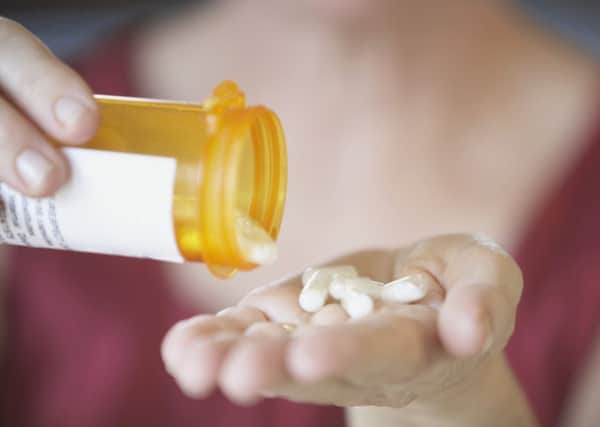North Lincolnshire Trust signs up to reducing overuse of antibiotics


In order for people to continue fighting infections, health professionals are warning people of the risks if antibiotics are used too widely, as the bacteria causing infections may become resistant to the drugs.
Andy Karvot, consultant pharmacist-antimicrobials across Northern Lincolnshire and Goole NHS Foundation Trust, wants to stop people turning to their GPs with the mindset that a simple cough or cold should be treated with antibiotics.
Advertisement
Hide AdAdvertisement
Hide AdHe has issued the advice as part of European Antibiotic Awareness Day, which is being held on Wednesday November 18, and which also coincides with World Antibiotic Awareness Week which runs from November 16 to 22.
Mr Karvot said: “I have registered the Trust’s support for the awareness day and we are an Antibiotic Guardian as it is essential that we use antibiotics responsibly in order for them to continue fighting infections. Preserving antibiotic effectiveness is everybody’s responsibility.”
If antibiotics continue to be misused, then it could lead to the return of a pre-antibiotic era where a common bacterial infection such as pneumonia was often a death sentence.
Mr Karvot said: “The theme of this year’s week-long campaign is Handle with Care, which highlights the fact antibiotics are a precious resource and should be preserved.”
Advertisement
Hide AdAdvertisement
Hide AdHe added: “The common cold or flu should not need such medication as these are viral infections against which antibiotics are ineffective and most episodes are self-limiting and will disappear within a week or so. Simple relief measures such as paracetamol, cold and flu remedies, decongestants, cough syrups and plenty of rest will often be enough.
“Taking antibiotics should only be as a last resort for suspected bacterial infections. We need to use antibiotics responsibly in order for them to continue fighting infections. Bacteria can adapt and find ways to survive the effects of an antibiotic. They become ‘antibiotic resistant’ which is one of the most significant threats to patient safety across Europe as we will run out of effective antibiotics to treat serious infections.
“Bacteria are very efficient at developing resistance to antibiotics and much quicker at doing so than humans are at developing new, more effective ones. By using antibiotics prudently we can slow down the development of resistance. It’s not possible to stop it completely but careful use will buy some time to develop new types of antibiotics.
“I am fully supportive of the recent national drive to urge people to become ‘Antibiotic Guardians’ – this is a campaign as part of European Antibiotic Awareness Day on November 18. This involves making both health professionals and the public more aware that the use of antibiotics should only be when absolutely necessary and indicated.”
Antibiotics fact file:
Advertisement
Hide AdAdvertisement
Hide Ad· Antibiotics are essential medicine for treating bacterial infections. They do NOT work with infections caused by viruses such as common colds or flu
· They do not prevent viruses from spreading to other people
· Bacteria can adapt and find ways to survive the effects of an antibiotic. They become ‘antibiotic resistant’, so that the antibiotic no longer works. The more an antibiotic is used, the more bacteria become resistant to it
· They often give you side effects such as diarrhoea
· Antibiotics should be taken as prescribed, never saved for later or shared with others; it is important we use antibiotics in the right way, the right drug, at the right dose, at the right time for the right duration. Appropriate use of antibiotics will slow down the development of antibiotic resistance